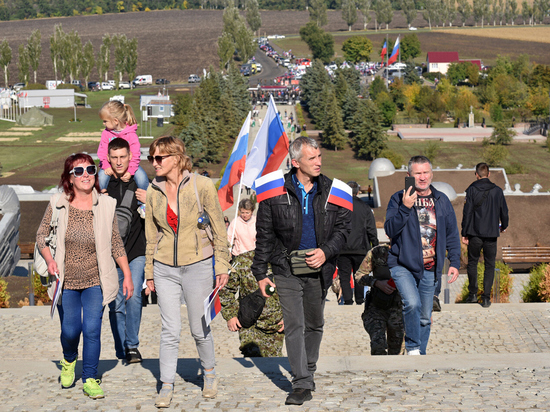The expert assessed the economic benefits for residents of the joined regions
[ad_1]

“They are entitled to all the benefits and payments that exist for Russian citizens”
After summing up the results of the referenda today, on September 30, Russian President Vladimir Putin and the heads of the Donetsk and Luhansk People’s Republics, Zaporozhye and Kherson regions signed agreements on the entry of these regions into the Russian Federation. The documents will finally enter into force after approval by the Constitutional Court and both houses of parliament. MK spoke with experts about what awaits people from these regions after they join Russia and what consequences this event will have for the Russian economy.
“I want to be heard: people in the Lugansk and Donetsk republics, in the Zaporozhye and Kherson regions become our citizens forever,” the President of Russia announced in his welcoming speech at the signing ceremony in the St. George Hall of the Grand Kremlin Palace.
What this means in practice, we learned from Georgy Ostapkovich, a well-known economist and director of the HSE Center for Market Research:
– Today, Russian President Vladimir Putin and the heads of these four regions signed a document on joining the Russian Federation. In fact, residents of the Lugansk and Donetsk republics, Zaporozhye and Kherson regions become citizens of the Russian Federation. Constitutionally, they are subject to all legislative acts that are required for Russian citizens, regardless of whether they are a Khanty-Mansi citizen or a Lugansk citizen. At the same time, some by-laws and resolutions may be issued in the coming days, but I do not think that they can dramatically change the situation for the residents of these regions. They actually became Russians.
This means that they will be guaranteed all the benefits and social benefits that are due to Russian citizens: these are pensions, maternity capital, all the required benefits for the disabled, children’s payments, and even, conditionally, up to the procedure for paying utility bills – all this automatically transfers to residents of the new regions. I would not even begin to list all these benefits, because they can be named up to a hundred.
– What will be the consequences for the Russian budget?
– It is quite obvious that the budget of the Russian Federation will be redistributed to these regions. The situation is the same as in 2014 with Crimea. The draft budget, which the Ministry of Finance presented to the government two weeks ago, is likely to be subject to adjustments. This is just a draft budget; it has not even been submitted to the Duma yet. That is, some changes will be made taking into account investments in human capital and the social sphere, and most importantly, taking into account investments in the economy, infrastructure, and industry, because these regions have dilapidated territories. We need to build, we need to invest. Therefore, the budget that will be submitted to the Duma in October will undergo changes in terms of financing these territories. This is what can be said about the situation as a whole, without taking into account, possibly, subsequently adopted by-laws and resolutions. At least, this was the case in 2014 in connection with the Crimean events.
The enterprises of these regions will work and pay taxes to the Russian budget. Naturally, all residents will switch to the Russian ruble, their salary will be in rubles, they will deduct personal income tax (tax on personal income) 13% to the budget of the Russian Federation, that is, the entire tax base will go to the Russian budget.
At the same time, Georgy Ostapkovich noted that at first, as expected, these regions, of course, will not be active in economic terms, based on their current difficult situation, but the situation will gradually improve.
Recall that Russian President Vladimir Putin expressed confidence in his welcoming speech that “the Federal Assembly will support constitutional laws on the adoption and formation in Russia of four new regions, four new subjects of the Russian Federation, because this is the will of millions of people.”
[ad_2]
Source link






